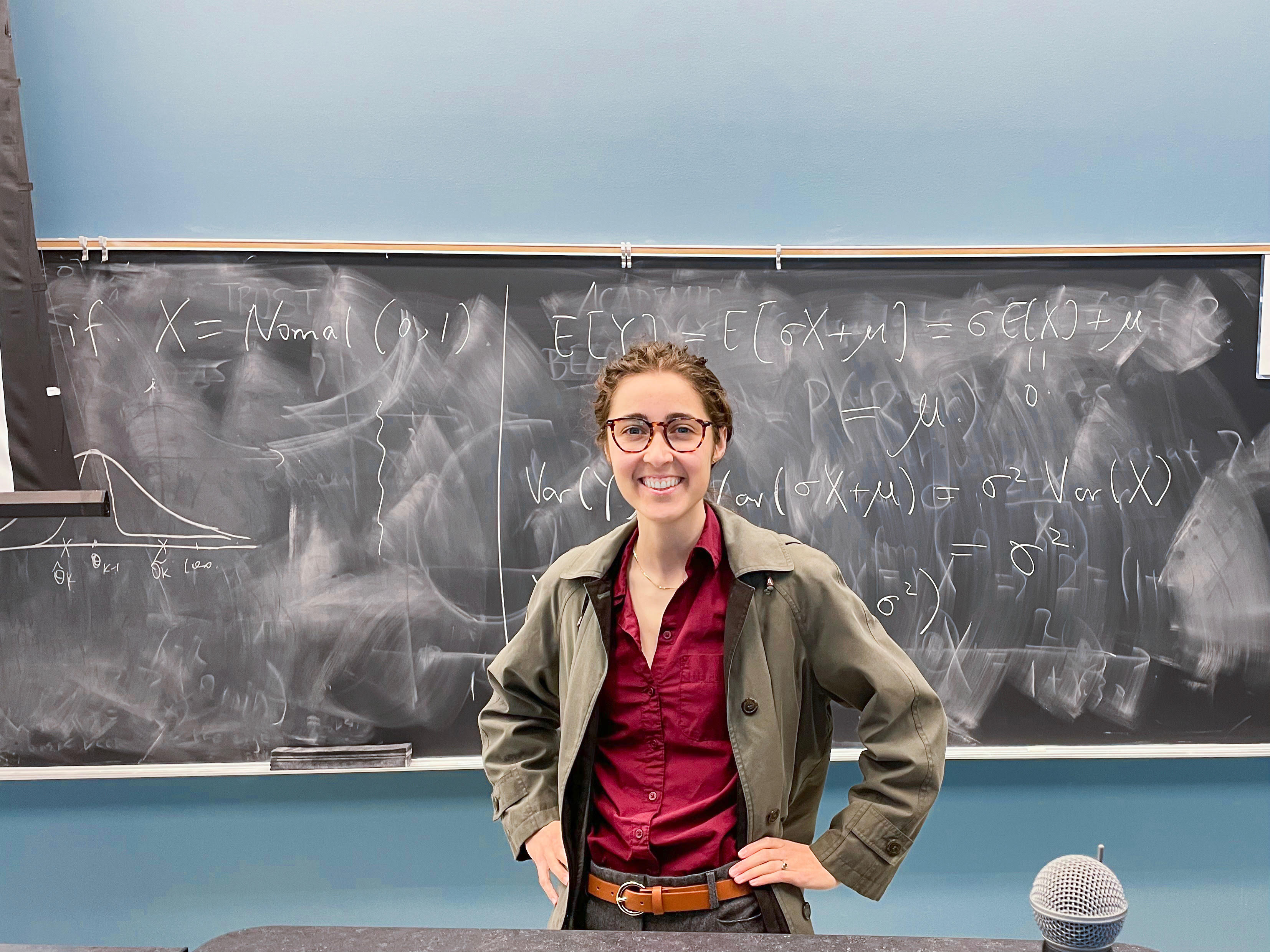Hello!
My name is Audrey, and I’m a neuroscientist. I study brain cells: how they talk to each other, what they’re saying, and how they help us figure out what’s going on in our environments.
I started this newsletter because I’m increasingly concerned about how science and medical research is viewed by the public. There’s been a shift over the last few years in how I hear people talk about science, and it’s at odds with what I see and experience in my day-to-day life as a researcher. I feel so excited about the amount of progress being made in the scientific community, from treatments for HIV and pediatric cancers to new vaccines for RSV and cancer, but I sense a growing unease with these same discoveries amongst the general public, with an increase in discussion of conspiracy theories (like the myth that vaccines cause autism), a decrease in the number of people who support public health measures backed by science (like fluoride in our drinking water), and general growing distrust in the scientific and medical communities.
I’m sure there are many factors at play that have widened this chasm between scientists and non-scientists, but I think one is a misunderstanding of how science works: how basic science informs medical breakthroughs, how science is funded in the US, and the role that pharmaceutical companies and medical professionals play. I think most people would be surprised to hear that much of what we know about human genetics comes from studying yeast and worms, or that the US federal government funds upwards of 90% of the research happening at universities across the US, both public and private.
In addition, I think another big driver of this gap between scientists and the general public is a misunderstanding of who scientists are. I’ve worked in academia for the last nine years of my life, and the people I work with are some of the most compassionate, hard-working, dedicated individuals, who sacrifice many years of their lives to bring new advancements into the world that will make our lives better. As I read Facebook comments and see the rhetoric on TV, I often find myself wishing I could just show people the scientists I know: I wish I could bring you to lab and show you the people I work with every day, show you how hard they are working, and show you how the work they do makes your life better and our communities stronger.
Your Neighborhood Scientist is my initiative to do just that: to tell the world how the scientists in your neighborhoods are working hard—just like you—to leave a positive mark on this world. I started this newsletter because I believe that we can work together to show the world that science is critical to the health and well-being of our communities. Changing this rhetoric is no small task, and I think it starts with information: how does this all work? How does the work scientists do every day, funded by taxpayers, eventually end up handed to you over the counter at your local pharmacy in a paper bag that contains life-saving medication? How does it strengthen our economy? How does it enhance our national defense and emergency preparedness?
I also realize that if you’re reading this newsletter, you’re likely someone who is somewhat interested in science. I probably don’t have to convince you too much that we should fund basic science research, and that scientists are incredible, genuine people who are trying to make the world a better place. But why do you think that? Maybe it’s because you understand the intricacies of science, and you know about NIH institutes and CAR-T cell pathways. Or maybe not: most likely, you believe in science because you know and trust me, Audrey, your neighborhood scientist. People’s beliefs are not informed by facts and information: they are informed by feelings and trust.
In our newsletter, we’ll work to fill the science information gap by stressing the importance of basic science research and providing information about how it works, and I hope that you do learn more about the work scientists do. But to me, it’s not important if you remember specific details, like what an indirect rate is at the NIH. What’s important is that you feel inspired to tell other people that know and trust you about how important you think science is. Perhaps over time they might even become convinced that they, too, should advocate for scientists and good science policy. The goal is to provide the knowledge that scientists are working hard to make the world a better place and use this as a vehicle to spread positive feelings and trust surrounding science, because these are the things that change people’s minds.
I don’t know what will ultimately happen with this journey, but if you read all the way through: thank you. Tell someone who trusts you about science today, and see you in a couple weeks.
